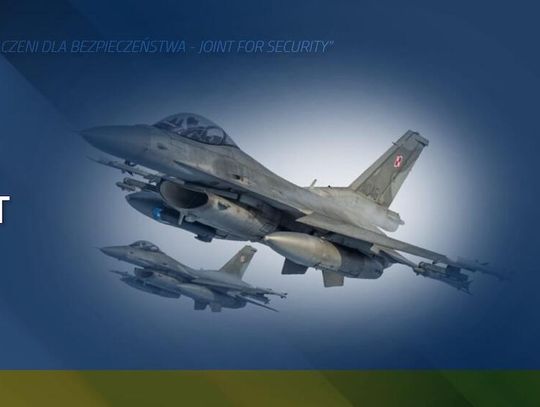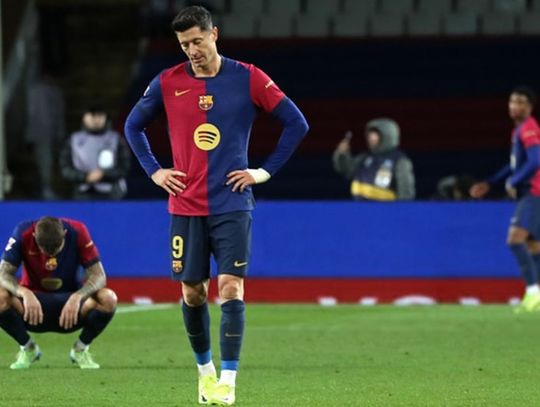W telewizyjnych newsach dużo ostatnio mówi się o możliwości wybuchu wojny z Iranem. Są tacy, którzy tłumaczą, dlaczego wojna z Iranem jest potrzebna, a także tacy, którzy twierdzą, że byłaby błędem.
Ja jestem zmęczony wojną.
Przeżyłem wojnę koreańską, wietnamską, pierwszą i drugą wojnę w zatoce, wojnę z terrorem, wojnę afgańską i w Iraku. Po drodze oczywiście był cały szereg pomniejszych wojenek, typu Panama, Grenada czy Liban oraz innych, o których już zapomniałem, o których pamiętają już tylko bliscy ich ofiar.
Wojna to coś okropnego. To jedna z prawd, których nauczyłem się od mojej mamy i ojca; pisząc o ich przeżyciach i doświadczeniach innych Polaków podczas drugiej wojny światowej.
W wierszu „Krajobraz z martwymi końmi” piszę o 1 wrześnie 1939 roku, kiedy to w Polsce rozpoczęła się druga wojna światowa.
Wojna uderza jak młotek, ciężki i twardy
rozpłaszczając ziemię, zabijając, co miękkie:
konie i dzieci, kwiaty, nadzieję, miłość,
zapach świeżej ziemi, chłód strumienia i
wygląd drzew, które rozwijają liście
na koniec marca i na początku kwietnia.
To dla mnie oznacza wojna. Tak ją widzę. W wojnie nie ma niczego pięknego, niczego bohaterskiego, epickiego czy homeryckiego. W drugiej wojnie światowej zginęło 50 milionów cywilów. Żadna z tych śmierci nie byłą śmiercią spokojną, taką której chciałbyś, żeby umarła twoja matka, ojciec lub dzieci.
Nie lubię tego przyznawać, ale przyznać muszę – czasami wojna jest potrzebna. Cieszę się, że Ameryka poszła na wojnę z Hitlerem, że dopadła go, jego żołnierzy i wyznawców i pogrzebała ich w nieoznaczonych grobach.
Wojna, taka jak ją widzę, była straszna ale potrzebna. Ale nie mogę zapomnieć o tym, że Niemcy, którzy walczyli za Hitlera również uważali, że była potrzebna i uzasadniona.
To jeden z problemów z wojną.
Wojna sprawia, że ludzie się jednoczą – ci, którzy wojny nie chcą i ci, którzy wojny pragną. Na samym końcu wszyscy drapiemy się w głowę i rozpaczamy nad chaosem i stratą.
War? Rumors of War?
There’s been a lot of talk in the news about the possibility of war in the Iran and the Middle East. Some people are talking about why we need to go to war with Iran, and some are talking about why war with Iran is a mistake.
I'm tired of war.
I've lived through the Korean war, the Vietnam War, the first Gulf War, the second Gulf War, the war on Terror, the Afghan War, and the Iraq War. And this list doesn't include all the little bitty wars I've lived through, like Panama, Grenada, Lebanon, and it doesn’t include all those other little bitty wars I've forgotten about and that only the dead remember.
War is a terrible thing. I think that’s one of the things I’ve learned from my mother and father and from writing about their lives and the experience of other Poles in World War II.
In “Landscape with Dead Horses,” I talk about the way the war began in Poland on September 1, 1939. Here’s what I say:
War comes down like a hammer, heavy and hard
flattening the earth and killing the soft things:
horses and children, flowers and hope, love
and the smell of the farmers’ earth, the coolness
of the creek, the look of trees as they unfurl
their leaves in late March and early April.
This is war for me. This is the way I see war. There’s nothing pretty about war, nothing heroic, nothing epic or Homeric. 50 million civilians died in World War II. And you can bet that not one of those deaths was peaceful, not one was a death you would want to wish on your own mother or your father or your children.
And what I hate to admit about war – but I have to – is that sometimes war is necessary.
I’m glad that the US went to war against Hitler and dragged him and his soldiers and followers down and tried to bury every single one of them in an unmarked and unmourned grave.
War, as I see it, was terrible and it was necessary, but the thing I can’t ever forget is that the Germans who fought for Hitler also thought the war was necessary and justified.
That’s one of the problems with war.
What brings us together finally – brings together those who don’t want war and those who want war – is that we all end up scratching our heads and grieving over the chaos and the loss.
John Guzlowski
amerykański pisarz i poeta polskiego pochodzenia. Publikował w wielu pismach literackich, zarówno w USA, jak i za granicą, m.in. w „Writer’s Almanac”, „Akcent”, „Ontario Review” i „North American Review”. Jego wiersze i eseje opisujące przeżycia jego rodziców – robotników przymusowych w nazistowskich Niemczech oraz uchodźców wojennych, którzy emigrowali do Chicago – ukazały się we wspomnieniowym tomie pt. „Echoes of Tattered Tongues”. W 2017 roku książka ta zdobyła nagrodę poetycką im. Benjamina Franklina oraz nagrodę literacką Erica Hoffera, za najbardziej prowokującą do myślenia książkę roku. Jest również autorem dwóch powieści kryminalnych o detektywie Hanku Purcellu oraz powieści wojennej pt. „Road of Bones”. John Guzlowski jest emerytowanym profesorem Eastern Illinois University.
—
John Guzlowski's writing has been featured in Garrison Keillor’s Writer’s Almanac, Akcent, Ontario Review, North American Review, and other journals here and abroad. His poems and personal essays about his Polish parents’ experiences as slave laborers in Nazi Germany and refugees in Chicago appear in his memoir Echoes of Tattered Tongues. Echoes received the 2017 Benjamin Franklin Poetry Award and the Eric Hoffer Foundation's Montaigne Award for most thought-provoking book of the year. He is also the author of two Hank Purcell mysteries and the war novel Road of Bones. Guzlowski is a Professor Emeritus at Eastern Illinois University.











